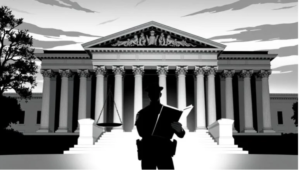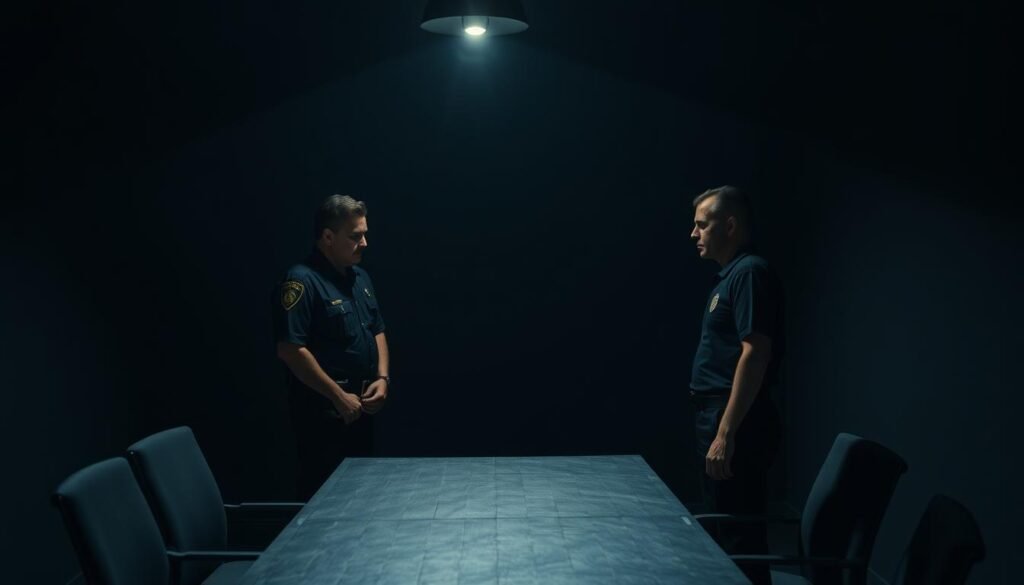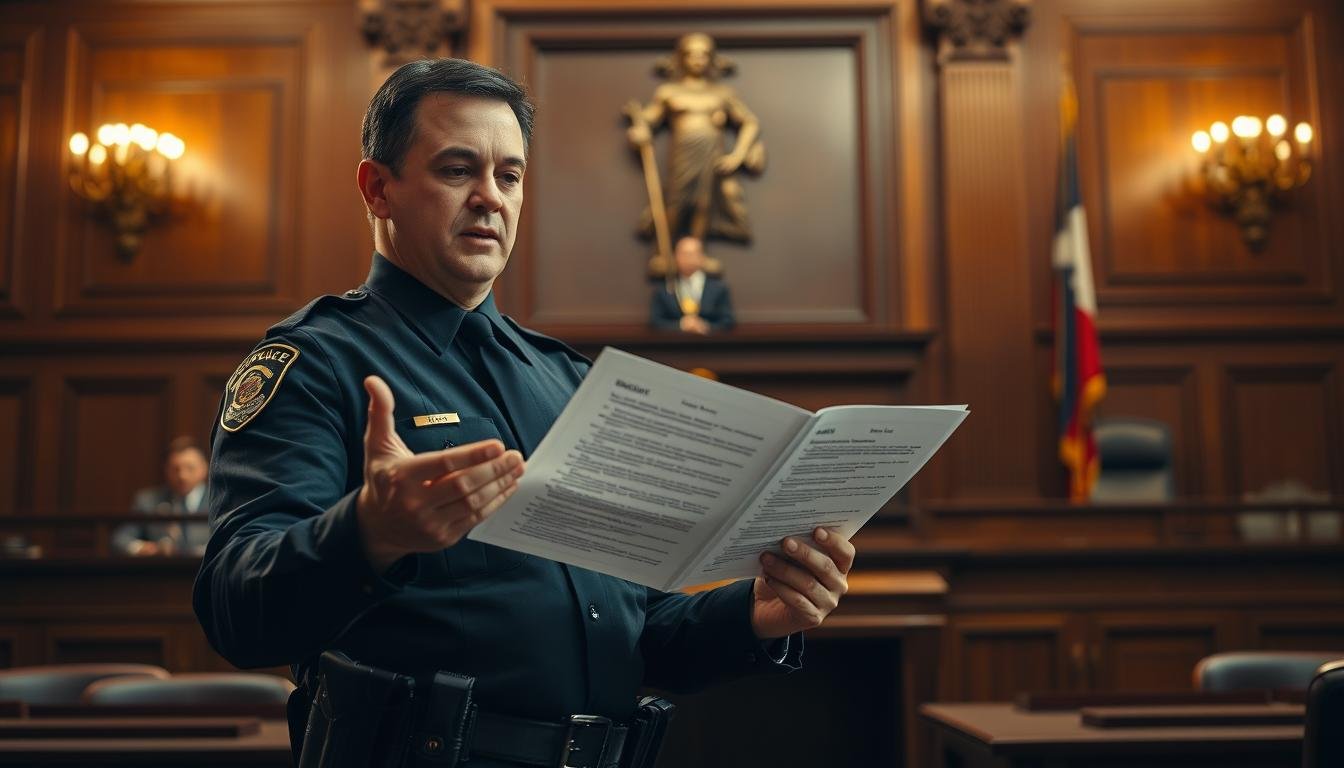Miranda Rights protect suspects during custodial interrogation by requiring police to issue clear warnings. Rooted in the Fifth and Sixth Amendments, these rights were shaped by landmark cases including Miranda v. Arizona, Gideon v. Wainwright, and Mapp v. Ohio.
The concept protects a person’s constitutional safeguards during police encounters. It ensures a suspect hears a clear warning before custodial questioning so statements are voluntary and admissible in court.
The standard miranda warning outlines the right to remain silent, that anything said may be used in court, and the right to an attorney. It also notes that one will be appointed if the person cannot afford counsel.
Police must deliver this script before interrogation when a person is in custody. Routine identification questions may still be asked, and limited public safety queries can precede a warning.
A suspect may waive these protections but can invoke the right to an attorney at any time. Courts look closely at custody and interrogation to decide if the warning was required.
For historical background and legal context, see a summary of the decision and evolution on the court overview and a detailed history at a law history resource.
Key Takeaways
- The warning protects the Fifth and Sixth Amendment safeguards during custodial interrogation.
- Police must read the miranda warning when two conditions exist: custody and interrogation.
- Basic ID questions can be asked even without a warning; formal questioning requires it.
- A suspect can waive or later invoke the right to remain silent and request an attorney.
- Some jurisdictions add language clarifying that appointed counsel is arranged by the court.
Miranda Rights Explained: Purpose, Scope, And Today’s Relevance
The warning exists to prevent coerced statements and to make sure a person understands legal consequences before questioning.
What “You Have The Right To Remain Silent” Really Means
The right to remain silent protects against self-incrimination under the Fifth Amendment. A person may decline to answer police questions without that silence being used at trial.
If silence comes before an official warning, courts sometimes treat it differently. To avoid doubt, a suspect should say clearly, “I want to invoke my right to remain silent, and I need to talk to a lawyer before answering questions.”
How “Anything You Say Can Be Used In A Court Of Law” Applies In Practice
Once a suspect waives their protections and begins answering questions, those statements can be used against them in court. That’s why the presence of legal counsel—affirmed as a constitutional right in Gideon v. Wainwright: The Right to Legal Counsel for All—is critical during interrogation.
If counsel is requested, law enforcement must cease questioning until an attorney arrives. The Sixth Amendment guarantees this protection, especially during post-arrest interactions.
| Setting | Warning Needed? | Effect If Spoken |
|---|---|---|
| On-scene encounter | No (usually) | Statements may be admissible; context matters |
| Custodial interrogation | Yes | Answers can be used in court if waiver is valid |
| Stationhouse questioning | Yes | Silence invoked halts questioning until attorney is present |
Legal Origins: Miranda v. Arizona, The Supreme Court, And Constitutional Foundations
A single confession obtained without warnings prompted a landmark decision that reshaped criminal procedure. The Supreme Court held that statements gathered after prolonged questioning could not be admitted because the suspect lacked notice of constitutional protections.

Who Was Ernesto Miranda And Why The Case Matters
Ernesto Miranda was questioned for two hours and then confessed to serious crimes. The Court found his confession inadmissible because he was not told he did not have to speak or that he could consult an attorney.
How the Exclusionary Rule Shapes Miranda Protections
The Supreme Court’s decision in Miranda v. Arizona built upon earlier rulings that protected defendants from unconstitutional evidence use. One of the most influential was Mapp v. Ohio: The Case That Reinforced the Exclusionary Rule, which held that evidence obtained in violation of the Fourth Amendment cannot be used in state courts.
This principle—known as the exclusionary rule—was later extended to confessions and statements made without proper warnings. In Miranda, the Court applied the same logic: if a suspect isn’t informed of their rights, any resulting confession may be inadmissible, just like illegally seized physical evidence.
Together, Mapp and Miranda form a legal foundation that ensures constitutional violations don’t lead to convictions based on improperly obtained evidence.
The Fifth Amendment And The Sixth Amendment Foundations
The decision reinforced the Fifth Amendment protection against self‑incrimination and the Sixth Amendment guarantee of counsel. Together, these rights ensure a suspect can refuse to answer and can get legal help before questioning.
The Standard Warning And Common Wording
The modern miranda warning informs a person of the right to remain silent, that anything said may be used in court, the right to an attorney, and that if one cannot afford counsel, one appointed counsel will be provided.
State And Military Variations
Some states add language clarifying officers cannot provide a lawyer at the scene but one will be appointed later. The military follows Article 31, which requires written advisements and signed acknowledgment.
For a concise summary of the decision, see the Miranda v. Arizona summary.
Custody, Interrogation, And When Police Must Read The Miranda Warning
Custody is defined by whether a reasonable person would feel free to end the contact. If freedom is significantly restrained, the protections attach before substantive questioning begins.
What Counts As “In Custody”
What Counts As “In Custody” And How A Reasonable Person Standard Works
Custody turns on whether a typical person would believe they could leave. Being handcuffed, locked in an interview room, or told one may not go are common indicators of custody.
What Qualifies As “Interrogation” Versus Routine Booking Questions
Interrogation covers focused investigative questions designed to elicit an incriminating response. Routine booking queries such as name and date of birth usually do not require a miranda warning.
Situations Requiring Miranda: Custodial Interrogation And Stationhouse Questioning
Formal stationhouse questioning and custodial interviews need warnings before officers ask substantive questions. Failure to give the warning may lead a court to suppress statements as evidence.
When Miranda Is Not Required: Voluntary Statements, Public Safety, And Traffic Stops
Voluntary comments made without prompting and brief roadside stops are generally non‑custodial.

| Situation | Custody? | Warning Needed? |
|---|---|---|
| Field Interview | No | No |
| Stationhouse Interview | Yes | Yes |
| Booking Intake (ID) | No | No |
| Public Safety Question | Varies | May Be Exception |
Special Notes: Pre‑Miranda Silence, Juveniles, And Identification Questions
Pre‑warning silence can be used against a suspect unless the right remain silent is clearly invoked. Juveniles may receive extra protections in some states.
Clear invocation stops questioning. For more practical guidance on advisements and wording, see an overview at what to expect and case listings at relevant decisions.
Invoking And Waiving Rights: Attorney Present, Remaining Silent, And Court Use Of Statements
To protect legal options, suspects should state plainly that they choose to remain silent and want an attorney. A clear, verbal invocation ends interrogation until counsel is present and consults with the suspect.
How To Clearly Invoke The Right To Remain Silent Or Request A Lawyer
Say something explicit, for example: “I want to invoke my right to remain silent, and I want an attorney present.” Silence alone is not enough. Police must stop questioning after a clear request for counsel.
Waiving Rights: Express Waivers, Implied Waivers, And Changing Your Mind
An express waiver is a direct statement that the suspect will speak. An implied waiver may occur if the person answers after hearing the miranda warning. A suspect can stop at any time and ask for a lawyer, and questioning must cease.
If Miranda Rights Are Violated: Suppression, Impeachment Use, And Evidence Implications
If warnings are not given before interrogation, statements may be suppressed at trial. Prosecutors, however, can sometimes use those statements to impeach a defendant who testifies differently.

| Issue | Effect | Notes |
|---|---|---|
| Clear Request For Lawyer | Interrogation Stops | Suspect may confer with attorney before further questions |
| Express Waiver | Statements Admissible | Must be knowing and voluntary |
| Warnings Not Given | Possible Suppression | Some statements still usable for impeachment |
Conclusion
The takeaway is simple: proper advisement before questioning affects whether statements can be used in a case.
Miranda rights protect the right self-incrimination shield and access to counsel. The supreme court ruling reshaped how police and courts treat confessions and confessions obtained in custody and interrogation.
Exceptions exist for public safety, routine ID questions, and truly voluntary comments. Improperly warned statements are often excluded, though some may still be used to impeach a person who testifies differently.
Practical steps matter: clearly invoke, remain silent, and ask for an attorney or lawyer. A suspect who follows these steps gives counsel the best chance to defend the case and challenge tainted evidence.
FAQ
When do police have to read Miranda Rights?
Police must read Miranda Rights when a person is both in custody and being interrogated. If either condition isn’t met, the warning isn’t required. Once both apply, failure to issue Miranda Rights may make statements inadmissible in court.
Can you waive Miranda Rights after hearing them?
Yes, a suspect can waive Miranda Rights after hearing them, but the waiver must be voluntary, knowing, and intelligent. If the waiver is coerced or misunderstood, any statements made may be excluded from trial.
What happens if Miranda Rights aren’t read?
If police fail to read Miranda Rights during custodial interrogation, any statements made may be inadmissible in court. This protects suspects from self-incrimination under the Fifth Amendment.
Do juveniles get extra protection under Miranda?
Yes, courts often apply stricter standards when juveniles waive Miranda Rights. Factors like age, education, and understanding of legal consequences are considered to ensure the waiver is valid.
What’s the difference between custody and interrogation?
Custody means a person is not free to leave, while interrogation involves direct questioning or actions likely to elicit a response. Both must be present for Miranda Rights to apply.
Do all jurisdictions use the same wording for the warning?
Wording varies by state, military branch, or agency, though key elements remain consistent: the right to remain silent, that statements may be used in court, and the right to an attorney. Some places add specific sentences or use alternate phrasing, and the military follows Article 31 advisements that serve a similar purpose.
What are the warning statements police must give and where did they come from?
The warning originates from the U.S. Supreme Court decision in Miranda v. Arizona, which established that persons in police custody must receive clear advisals about their Fifth Amendment protection against self-incrimination and their Sixth Amendment right to an attorney. Law enforcement agencies use a standard form of wording to make suspects aware they can remain silent, that statements may be used in court, and that a lawyer can be provided if they cannot afford one.
What does “you have the right to remain silent” actually protect?
That phrase protects a person from being compelled to make statements that could be used against them at trial. It prevents law enforcement from forcing answers during custodial questioning and supports the constitutional guarantee that no one can be required to testify against themselves in criminal proceedings.
How can something said to police be used in a court of law?
Statements made during custodial interrogation can be introduced as evidence at trial if they were given voluntarily and after any required advisals. Courts assess whether police properly informed the person of their rights and whether any waiver of those rights was knowing and intelligent before allowing the statement into evidence.
Who was Ernesto Miranda and why does his case matter?
Ernesto Miranda was the defendant in the landmark 1966 Supreme Court case that bears his name. The Court ruled that the prosecution could not use statements obtained during custodial interrogation unless the suspect had been informed of certain rights. The decision reshaped police procedure nationwide and tied constitutional protections directly to police advisements.
How do the Fifth and Sixth Amendments relate to these warnings?
The Fifth Amendment protects against compelled self-incrimination, which is the basis for telling suspects they may remain silent. The Sixth Amendment guarantees the right to counsel once formal charges are filed; combined with Miranda principles, it requires that suspects be told they can have an attorney present during questioning.
When must police read the warning — what counts as being “in custody”?
The warning is required during custodial interrogation. “In custody” means a reasonable person would feel they were not free to leave. Courts evaluate the location, duration, restraints, and police conduct to determine whether a situation met that standard.
Are there common situations where the warning is not required?
Yes. The warning is not required for voluntary, spontaneous statements made without interrogation; for brief traffic stops where a person is not in custody; or in certain public-safety exceptions where immediate questioning is necessary to avert danger. Each exception is narrowly applied by courts.
What qualifies as interrogation versus routine booking or administrative questions?
Interrogation includes direct questioning or actions likely to elicit an incriminating response. Routine administrative booking questions—like name, address, or fingerprinting—generally do not trigger the warning unless they are manipulated to obtain incriminating information.
How do pre‑warning silence and juvenile suspects affect the process?
Silence before advisals cannot be used against a suspect if police later obtain statements without proper warnings. Juveniles require special care: courts consider age, education, and experience when judging whether an advisal was understood, and many places require a parent or guardian, or counsel, be notified.
How should a person clearly invoke the right to remain silent or ask for a lawyer?
A person should state plainly that they wish to remain silent or that they want an attorney. Clear, unambiguous requests are required; vague remarks may not suffice. Once a suspect invokes counsel, police must stop questioning until an attorney is present or the suspect initiates further communication.
Can a suspect waive these protections and, if so, how is waiver determined?
Yes. A valid waiver must be knowing, intelligent, and voluntary. Courts look for explicit statements or actions showing the suspect understood the rights and chose to speak. Implied waivers are risky and scrutinized; express waivers signed in writing provide stronger evidence that rights were relinquished.
What happens if police fail to provide the required warning or ignore an invoked right?
Statements obtained in violation of the warning may be suppressed and excluded from the prosecution’s case in court. In some instances, illegally obtained admissions can still be used to impeach the defendant’s credibility if they testify inconsistently at trial. Remedies and outcomes depend on the facts and applicable case law.
Can a suspect who cannot afford an attorney receive one?
Yes. If a suspect requests counsel and cannot afford an attorney, the court will appoint one, typically a public defender, to ensure the Sixth Amendment right to counsel is honored during critical stages of the criminal process.
How do courts balance public safety against the requirement to give warnings?
Courts recognize a narrow public-safety exception that allows unwarned questioning when immediate answers are needed to prevent danger to the public. This exception is limited and judged case by case to prevent
